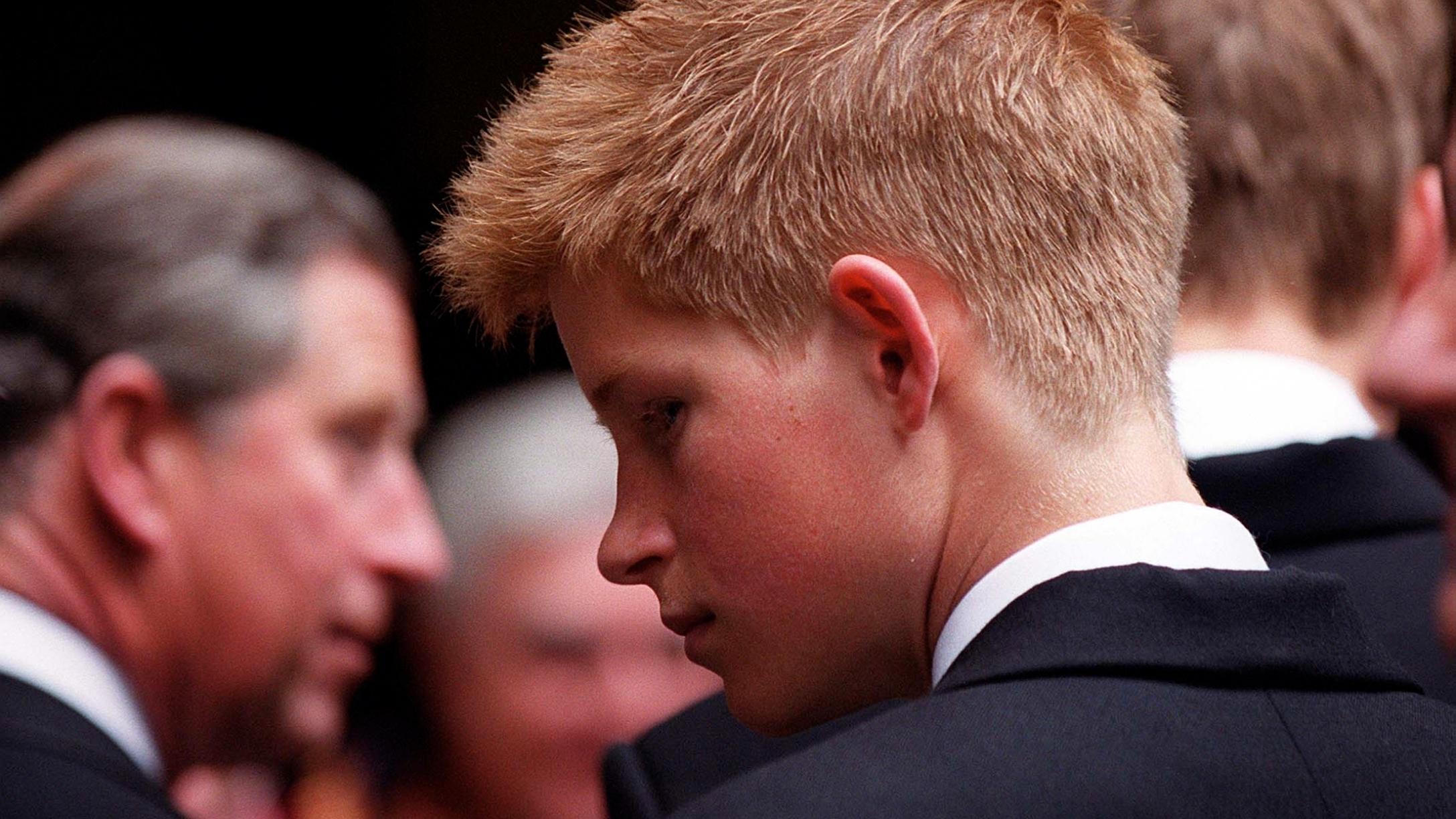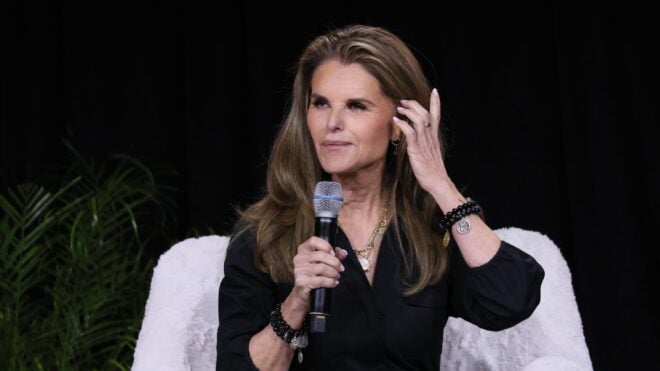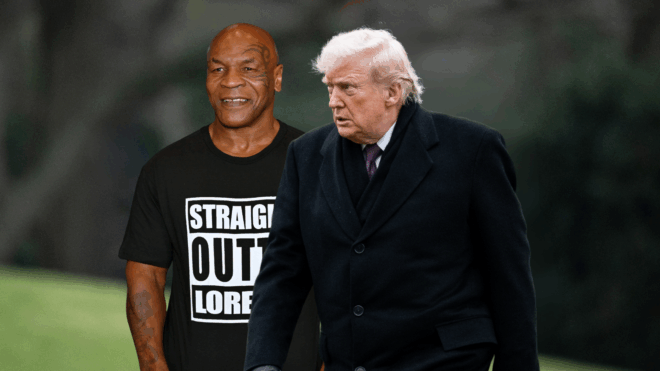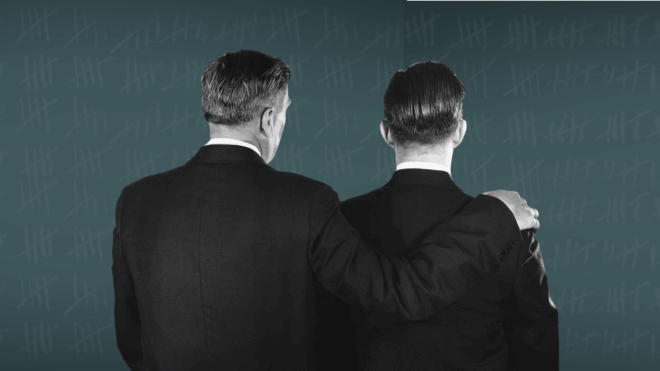
The Me You Can't See, a docuseries co-created by Oprah Winfrey and Prince Harry, is proving to be a deep dive into mental health from all different perspectives.
The series will explore the need to eliminate the stigma surrounding mental health needs and encourage those who may need help to seek it. Driven by storytelling, figures such as Lady Gaga and Glenn Close share their experiences. Both Oprah and Harry get into their own struggles with mental health and well-being throughout the years as well.
We're learning more about Harry's admissions throughout his portion of the series. It appears that he's getting more candid than ever about the many years he was lost and didn't consider seeking help an option. He also opens up about how he came to the decision that he needed help.
The episodes of The Me You Can't See are filled with candid admissions by Prince Harry about the different stages of his mental health journey and the people in his life who either helped and harmed the process.
"People who are hurt, understandably hurt, from their upbringing, their environment, what's happened to them, what they've been exposed to, what they've seen — whatever it is — if you don't transform, if you don't process it, then it ends up coming out and in all sorts of different ways and you can't control," Harry says in the first episode.
"I am one of the first people to recognize that firstly, I had a fear of — when I first went to therapy — a fear of losing. Four years of therapy for an individual that never thought that they would ever need or do therapy is … that's a long time. I wasn't in an environment where it was encouraged to talk about it either. That was sort of, like, squashed."
Harry explains that he struggled deeply following the 1997 death of his mom, Princess Diana. Harry was just shy of his 13th birthday at the time of her death. Afterward, he kept all his feelings to himself.
"I don't want to think about her, because if I think about her then it's going to bring up the fact that I can't bring her back and it's just going to make me sad," he recalled feeling.
"What's the point in thinking about something sad? What's the point of thinking about someone that you've lost and you're never going to get back again? And I just decided not to talk about it. No one was talking about it."
Harry shared one of his most prominent memories of his childhood. "Unfortunately, when I think about my mom, the first thing that comes to mind is always the same one over and over again," he said.
"Strapped in the car, seatbelt across, with my brother in the car as well, and my mother driving, being chased by three, four, five mopeds with paparazzi on. And then she was almost unable to drive because of the tears."
He recalled the numb feeling of walking behind her casket at her funeral. "It was like I was outside of my body and just walking along, doing what was expected of me, showing one-tenth of the emotion that everybody else was showing," he said.
"I thought, 'This is my mum. You never even met her.'"
Harry said that though family members knew he was struggling, there wasn't much done to help him.
"Family members have said just play the game and your life will be easier. But I have a hell of a lot of my mum in me. I feel as though I am outside of the system but I'm still stuck there. The only way to free yourself and break out is to tell the truth," he said.
For a while, Harry played the game and suppressed what he was feeling inside.
He struggled through his 20s in dealing with the pain. "And so 28 to probably 32 was a nightmare time in my life. I'm freaking out every single time I jump in the car and every single time I see a camera," he admitted.
"I would feel as though my body temperature was 2 or 3 degrees warmer than everybody else in the room. I would convince myself that my face was bright red, and therefore, everybody could see how I was feeling, but no one would know why, so it was embarrassing.
"You get in your head about it."
Harry also admitted that partying was a major escape for him. "I was willing to drink, I was willing to take drugs, I was willing to try and do the things that made me feel less like I was feeling," he shared.
"But I slowly became aware that, okay, I wasn't drinking Monday to Friday, but I would probably drink a week's worth in one day on a Friday or a Saturday night. And I would find myself drinking, not because I was enjoying it but because I was trying to mask something."
Harry regained some perspective on his life during his time in the military. "The happiest time of life was the 10 years in the Army," he shared, explaining it was the only place where being a royal didn't matter.
In the series' second episode, he continued to reflect on how his late 20s was a transformative time: "Now in hindsight, looking back, it's all about timing. Towards my late 20s, everything became really hectic for me. To the point of exhaustion, I was traveling all over the place because from my family's perspective, I guess I was the person who was, like, 'We need somebody to go there. Nepal, Harry. You go.' I was always the yes man. I was always one who didn't say yes, but then yes, yes, of course. Yes. Yes, yes, led to burnout."
Therapy helped him see and recognize those emotions: "It was like someone had taken a lid off. All of the emotions that I've suppressed for so many years suddenly came to the forefront. And I saw GPs [general practitioners], I saw doctors, I saw therapists, I saw alternative therapists. I saw all sorts of people. But it was meeting and being with Meghan, I knew that if I didn't do therapy and fix myself, that I was going to lose this woman who I could see spending the rest of my life with."
Harry admitted that both he and Meghan struggled with what came of their relationship going public: "There was a lot of learning right at the beginning of our relationship. She was shocked to be coming backstage of the institution, of the British royal family."
Harry revealed that Meghan asked him to seek help while they were in the midst of an argument. "When she said, 'I think you need to see someone,' that was in reaction to an argument we had. And in that argument, not knowing about it, I reverted back to 12-year-old Harry," he recalled.
"The moment I started therapy and probably within my second session, my therapist turned around to me, and said, 'That sounds like you are reverting to 12-year-old Harry.' I felt somewhat ashamed and defensive, 'But how dare you, you're calling me a child.' She was, 'I'm not calling you a child. I'm expressing sympathy and empathy for you for what happened to you when you were a child.'"
"'You never processed it. You were never allowed to talk about it. And all of a sudden now, it's coming up in different ways as projection,'" he continued.
"That was the start of a learning journey for me. I became aware that I'd been living in a bubble, within this family, within this institution. I was, sort of, almost trapped in a thought process or a mindset."
Harry explained that the media scrutiny and chaos surrounding his and Meghan's relationship brought very painful memories up of how the media treated his mother. "I thought my family would help," he shared, "but every single ask, request, warning, whatever, it is — just got met with total silence, total neglect. We spent four years trying to make it work. We did everything that we possibly could to stay there and carry on doing the role and doing the job. But Meghan was struggling."
Harry looked back at the night that Meghan recently admitted led her to suicidal thoughts — a January 2019 visit to Royal Albert Hall while she was pregnant with Archie.
"I'm also really angry with myself that we're stuck in this situation. I was ashamed that it had got this bad. I was ashamed to go to my family because — to be honest with you, like a lot of other people my age could probably relate to — I know that I'm not going to get from my family what I need," he said.
The prospect of Archie going through all of what Harry had been through and possibly more was enough to spark something in him: "I then had a son, who I would far rather be solely focused on, rather than every time I look in his eyes wondering whether my wife is going to end up like my mother and I'm going to have to look after him myself."
"That was one of the biggest reasons to leave, feeling trapped, and feeling controlled through fear. Both by the media and by the system itself, which never encouraged the talking about this kind of trauma. Certainly, now I will never be bullied into silence," Harry noted.
Harry explained that the work he did in therapy empowered him to get out and speak out: "One of the biggest lessons I've ever learned in life is you've sometimes got to go back and to deal with really uncomfortable situations and to be able to process it in order to be able to heal. For me, therapy has equipped me to be able to take on anything.
"That's why I'm here now. That's why my wife is here now. That feeling of being trapped within the family is — there was no option to leave. Eventually, when I made that decision for my family, I was still told you can't do this."
Harry is dedicated to breaking the generational curses that have plagued his family. "My father used to say to me, when I was younger, he used to say to both William and I, 'Well, it was like that for me. So it's going to be like that for you.' That doesn't make sense — just because you suffered it doesn't mean that your kids have to suffer," he said.
"In fact, quite the opposite. If you suffered, do everything you can to make sure that whatever negative experiences that you had, that you can make it right for your kids.
"We chose to put our mental health first. That's what we're doing. And that's what we will continue to do. Isn't this all about breaking the cycle? Isn't it all about making sure that history doesn't repeat itself? That whatever pain and suffering has happened to you, that you don't pass on."




